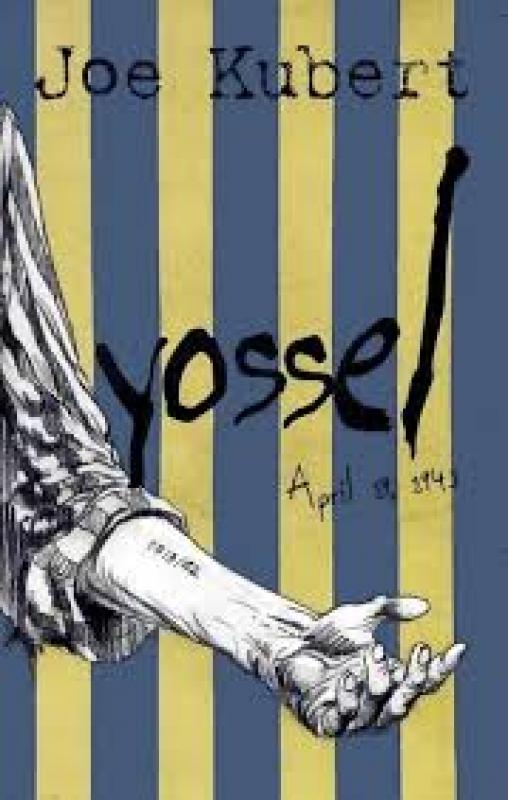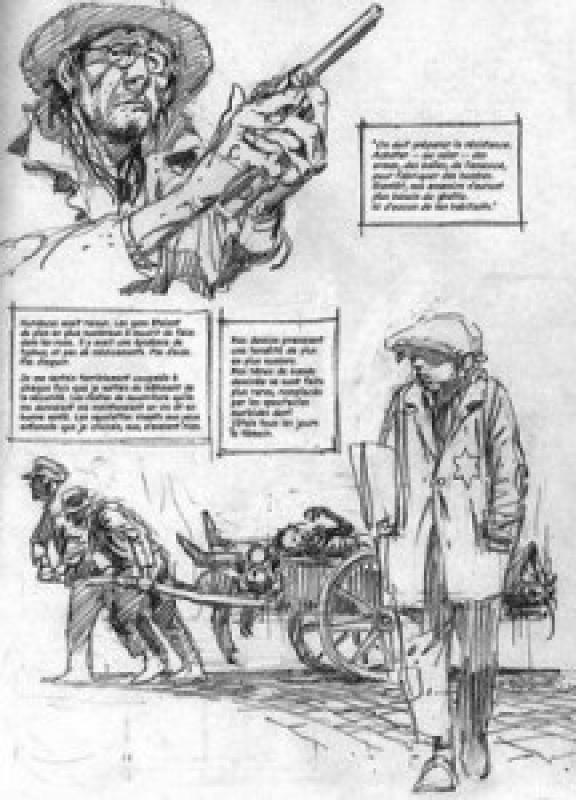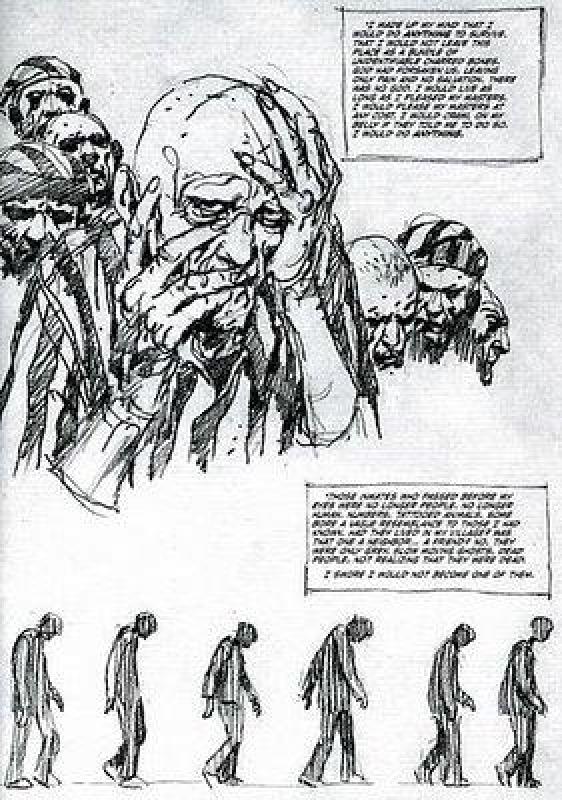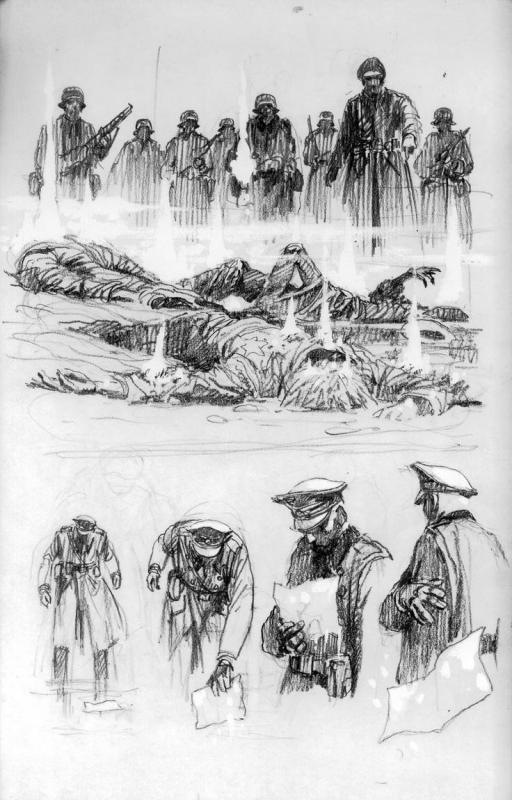Yossel: April 19, 1943’ by Joe Kubert DC Comics This is not your regular comic book. First because technically it is not a sequential pictorial narrative with the story told in pictures with added words. Rather it is illustrated text. Great illustrations, moody and emotional, but it is the text that tells the story. And then there is it’s subject It is a first person narrative, initially from teenager Yossel, living in the Warsaw ghetto created by the Nazis to contain Jews. The conceit is that Yossel has been a reader of American super-hero comics. If this seems unlikely a note in the book points out that ‘Tarzan’ and ‘Flash Gordon’ strips were being published in Poland in the 1930’s. Yossel loves to draw and does it very well - sufficiently well to impress his German captors and earn him some concessions that lighten the hunger and brutality. A further section is first –person narrative by The Rebbe, a teacher of The Torah, a man who has escaped from a Nazi death camp and describes conditions there. This section tells of the industrial scale of the Nazi murder of Jews. And gypsies and homosexuals. And anyone labelled as ‘inferior’ to the so-called ‘master race’. I had recently read ‘Swamp Thing’ which had bought to mind horrors comic like ‘Tales from the Crypt’ where the ‘horrors’ in those stories make you smile. Those described in Yossel , being things that you know actually happened, really do horrify. Kubert’s parents bought baby Joe from Poland to the USA in i926. But for that Joe Kubert would have been among the many dead in this story, not the teller of it. In an introduction he say’s “I was lucky”. The book is in remembrance of those who were not. It is a powerful and disturbing tribute. In these days of rising and more overt right –wing parties, racism, anti-Semitism, homophobia, an ‘us and The Other’ outlook - all that crap the Nazis espoused - it is also a reminder to all of us. Ideas have consequences. Comics are, as I was, mostly in the entertainments business. This is another example of how they can be more than that. Not addressed in this book - it has other concerns but it troubles me -is the mentality of the Germans who carried out these atrocities. How could they? What do they have to do to themselves before they can do such things to others? Some background and history – https://www.britannica.com/topic/anti-Semitism https://encyclopedia.ushmm.org/content/en/article/antisemitism




